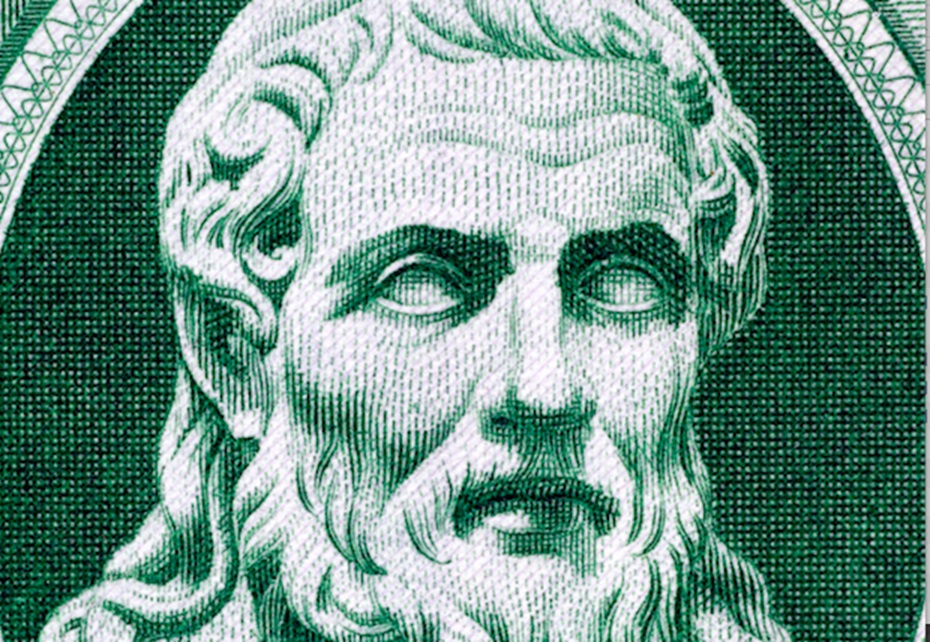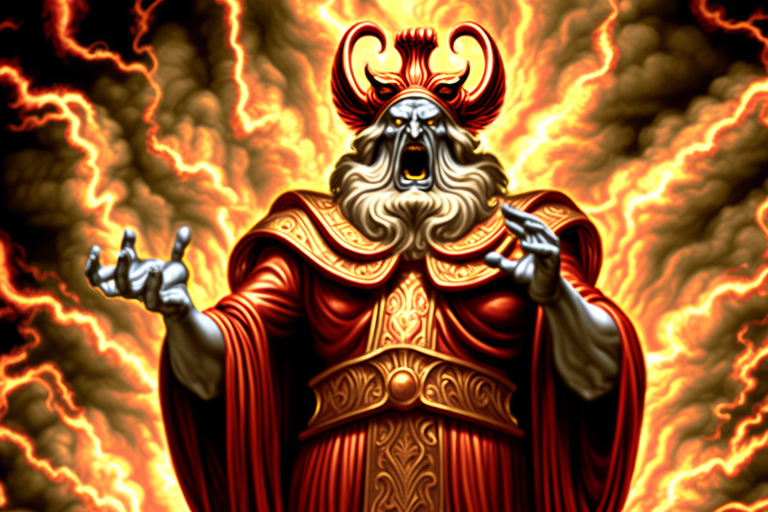We are controlled by an alien motivation, both collectively and individually. We are the unknowing victims of a mechanical or robotic motivation that is imposed upon us from outside, a ‘will’ that derives from a source outside of us, but which masquerades as us. We are possessed, hoodwinked, overcome by a ‘software virus’ that multiplies unhindered within our minds, warping us to its own ends. Ever-busy alien software routinely over-rides our true will without us ever noticing its true nature – we do not notice anything because we feel that it is our own will that is working through us. We’re more than happy to go along with the usurper of our own true will. The idea that it is not I who wants (that it is not really I who fears) seems laughably absurd. The wanter and the fearer are not the real ‘I’ however, but greedy fat cuckoos who have ejected the true self.
This is a drastic assertion to make and one that it is very easy to dismiss out of hand, but if we are willing to look at it more carefully (and willing to be frightened!) we may find out that it doesn’t perhaps sound so absurd after all. We can start off by thinking in terms of ‘spending unwisely’. The fulfilment of a motivation (or ‘urge’) can be thought of in terms of spending. ‘Spending’ requires two things – having something there to spend and having something to spend it on. To start off with – let us say – I am going around with lots of money in my pocket, and, as is often the way with money, I am tormented with the urge to spend it.
Now, I am well aware that a fool and his money are easily separated, and so I am not going to blow it on the first thing is see. I am going to take my time and not get rushed into anything. However, no matter how prudent I am, and no matter how exacting my standards, the time will inevitably come when I will buy something. After all, that is what I am interested in doing. I am not being careful because I don’t actually want to buy anything, but because I want to buy something worthwhile. So, sooner or later, I will spend my money. I have to spend my money – what else is it for but spending?
Now this is a dangerous business really because once I have spent my money I have spent it, and there is no way I can have it to spend again. Suppose I put my money on something that looks totally wonderful and I discover a bit later that it is not as great as I thought it was. I might not have been as smart as I thought I was – my criteria might have been thoroughly naïve – and then where would that leave me? All the same, as we have said, sooner or later I must come to a final decision with regard to the question of ‘what is worth buying’.
At the precise moment of buying I think “This is the one for me” and I am filled with excitement at the thought of owning it. All doubt is driven from my head and I am in a rush to get there before someone else beats me to it. There is a high associated with this ‘spending’ process – there is a burst of euphoria involved in it. Euphoria is like a message telling us “Yes! Yes! Yes! Yes! Yes! Yes…” or “This is it! This is it! This is it! This is it!” Euphoria is the ‘winner message’ – the signal to rejoice and celebrate.
Euphoria is unreservedly enthusiastic, it lets us know that we have made the right choice. There is no reflectiveness in euphoria, no questioning, just a blind rush to obtain the prize. Another essential aspect of euphoria is that it is transient. What this means is that once the glow wears off, there are lots of opportunities for doubt and questioning, lots of opportunities for wondering if what we have bought is so great after all. This is like getting married in the heat of infatuation and then waking up to discover, in the cold light of the morning, that you have no real feelings at all for the person lying beside you.
Now, if it were the case that we could just get up and leave, then this would be the most likely choice of action. However, as we have said, we cannot spend our money again – we have done the deal, and that is that. So where does this leave us? There are obviously various choices that are open to us at this point. We could complain and bemoan our fate, and wish bitterly that it were otherwise, or we can reassure ourselves that we have in fact made the right choice. The first is the negative reaction, the second the positive. For psychological reasons, we are most likely to take the second choice because that way we don’t have to feel like such a fool.
Let us assume that we do take the ‘positive’ reaction. From this point on, then, it is clear that I will become very defensive indeed. A large amount of my energy will go into backing up my original decision, into seeing things in a way that supports the view that my decision was sound. Naturally, we can’t admit that ‘defending’ is what we are doing, because that would be tantamount to admitting that our position is shaky, that it needs propping up. So from now on the game is defending, and defending against finding out that we are defending. I do this by ‘positive attacking’, which is to say, by going around positively asserting the value of what I have bought. I cannot rest content just with this – ideally, I have to win over others, so that they too will join me in asserting the value of the thing. In addition, I will attack those who do not join me, and do my best to persuade myself and others of their wrong-headedness.
Now, when we talk about ‘spending unwisely,’ we are not of course referring to money. It is something else, something more intangible, that we are spending. Perhaps we could say that we are spending some sort of ‘free energy’ that we have, or perhaps just to say that we are ‘spending our freedom’ is enough. How do we spend freedom, though? Well, one way to explain the idea is to say that we spend freedom by deciding what is real. As children, we are not so committed to a rigid view or picture of reality, we are not married to a belief about ‘the way things are’. Later on, we are committed. We are married. And if we find that we are not made happy or fulfilled by our beliefs, we generally cannot see any way out of the predicament except by struggling on and not giving ourselves the time or opportunity to think about it too much.
Dogma is of course a classic example of this process. Dogma can only ‘do it’ for us (in the sense of providing security) when we unreflectively act it out. We have to wholeheartedly ‘buy into it’. That is how dogma works – it is not there to be questioned, but to be translated into action, into reality. It is male authority which demands as its right blind obedience no matter what. Dogma, like all belief structures, is an essentially unstable state of affairs and it needs to be constantly maintained and defended: the only way I can carry on ignoring the shakiness of its foundations, i.e. carry on feeling secure in my rightness, is by being aggressively positive. This means that I cannot rest, or stay content with what I know, but instead I must carry it forward and convert others. I must proselytize. I must prove to myself that I am right by getting others to say the same thing that I do, believe the same things that I believe. And if there are those who say something else, believe something else, then they must be silenced. This is what James Carse calls a finite game.
Dogma is an extreme example, and as such it is easy for us to see its character, but the all belief shares in this essential character. At some point in the past we made a deal, we sold off our freedom for the security of a tangible positive reality that we say is ‘really ours’. And now, X years down the line, we have to make the most of what we have bought, even if it doesn’t always look the best – especially first thing in the morning. We’re stuck with it and so we just have to ‘make do’ the best way we can.
The ‘positive course of action’ is, as we have said, to put all our energy into avoiding facing the fact that we might have put our money on the wrong horse. One word for this is ‘denial’ – denial works in two ways, and the first way is positively goal-orientated action. Having a definite reality to believe in (and hold onto) provides euphoria; it generates the state of rapture. When we dwell upon what we have bought, we feel rapture. When we consolidate and build upon what we have bought, we feel rapture. When we add to what we have bought we feel rapture. Because all positive goals that we can conceive of derive from the system of belief that we are married to, all goal-orientated activity has as its ultimate motivation the need to validate that system. Validation manifests itself as euphoria – euphoria is confirmation that we were right. Goal-orientated action means ‘having things the way we want them to be’, and when we get things to be the way we want them to be we feel great satisfaction, we obtain the psychological state of rapture.
However, for every up there must be a down, and every time we gain something, we have also set ourselves up to lose. This other phase of the euphoria cycle is sadness and despair, and therefore the second way in which the engine of denial works is by negatively goal-orientated action (or ‘avoidance’). It works by avoiding sadness and pain, which is to say, ‘not having what I don’t want to have’. Taking both phases into account, then, I try to seize hold of pleasure, and I try to run away from the flip side of pleasure, which is pain. Both of these actions are the very same thing, which is what Krishnamurti calls resistance. Another term we could use is extrinsic motivation, which manifests itself as attraction/aversion. It is this motivating force, which does not stem from Reality (or from our true Will) that we spoke of as being an implant or an alien motivation.
All around us we see signs of a seething activity, ‘busy-ness’ and industry. The mighty flow of progress is in evidence everywhere. Yet progress in what exactly? If we were smart enough (or ‘reflective’ enough), we might start wondering what all this activity is in aid of. What is it all about? What’s it all for? What is the underlying motivation? Even though what is going on in the world around us seems so positive, if not downright impressive, the end that is being served is not our end at all. We are ‘serving a false master’. We are ‘going along with a bad thing’. We are colluding with our own doom…
As has been noted since ancient times, the seemingly splendid activity of the human world has a base or ignoble foundation, and that foundation is nothing other than psychological denial. In a nutshell, we dare not question what we are doing, or where we are going, because if we did that (as we rightly suspect) we might find that it is all a colossal error. We might find out that the product which we have purchased is a con. Our ‘progress’ is the progress of lemmings rushing for the nearest cliff. We’re getting better at doing something crazy. We’re getting better and better at jumping off a cliff.
At the end of our lives, therefore, we find that we have a very bitter pill to swallow. What happens is that I discover, finally, that I have been tricked, and that it was myself who did the tricking. I have given all my money, unstintingly, to whatever idol it was that I bought. I have invested my life in the wrong thing (because all things are the wrong thing) and now I have to start again from scratch. The precious gift of my life has been wasted on dreams and foolishness. And who benefits? Does anyone benefit? The dreamer does not benefit because, ultimately, he or she does not exist. The unreal can never benefit one jot, not even if the whole world’s treasures were to be poured out at its door. The unreal is only ever unreal, even if a hundred thousand lifetimes were to be sacrificed in its name. Yet, at the same time, nothing can ever satiate its craving to be benefited, its desire for more and more and more…
So who or what is this ‘false master’ that we have been serving? Does not this false master (at least) benefit from our service? The false master has been called Ahriman, the Principle of Darkness, and is also known as the Demiurge, the ‘False God’ of the Gnostics, the Father of Lies, the Great Deceiver, the one who promises the whole world but delivers nothing but the bitter dust of unfulfilled dreams. He has also been called Mara, Lord of Illusion. And yet, this false master does not benefit, for, as we have said, he does not exist. There is therefore no one there to benefit. Mara himself is an illusion…
The false master is unreality and unreality cannot ever benefit, for there is nothing there to benefit. Nothing can benefit or improve unreality – this is wasted effort because there is no benefiting or improving of unreality!
In the end, all we can say is that we spend our freedom on nothing, on phantoms and dreams, and so the result is pure waste. This unnecessary and pointless waste of what is most precious is the Great Perversity that is in evidence all around us, if only we were to open up our eyes and look.
This collectively validated nonsense is the unconscious folly which we partake in every day. It is the ‘mass hallucination’ which we are tireless in promoting and protecting. It is the ‘Great Foolishness’ to which we are utterly and profoundly blind…






